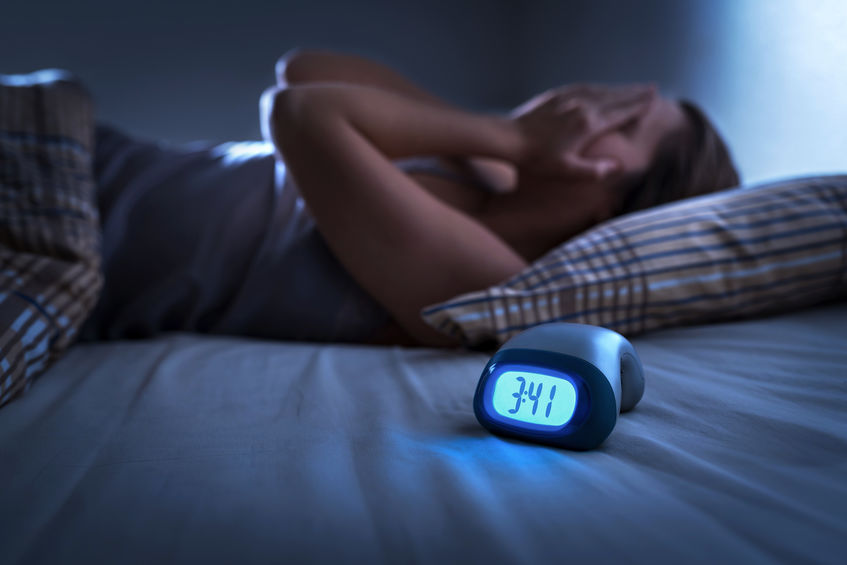
Sleep apnea, a common yet often undiagnosed sleep disorder, affects millions worldwide. Among its many symptoms, one of the most debilitating is persistent headaches. These headaches can significantly impede daily life, reducing productivity and causing a range of other health issues. In this detailed exploration, in collaboration with Houston Sleep Solutions, we will unravel the complex relationship between sleep apnea and headaches, shedding light on the causes and potential solutions for those who suffer from this challenging pair of conditions.
The Basics of Sleep Apnea
Before we draw the link to headaches, it’s crucial to understand what sleep apnea is. Often characterized by pauses in breathing or shallow breaths during sleep, sleep apnea can be broadly categorized into three types:
Obstructive Sleep Apnea (OSA)
The most common form, OSA occurs when the throat muscles intermittently relax and block the airway during sleep. This leads to reduced or paused breathing, often waking the affected individual.
Central Sleep Apnea (CSA)
A less common type, CSA occurs when your brain fails to transmit signals to your breathing muscles, resulting in irregular or stopped breathing.
Complex Sleep Apnea Syndrome
This type of sleep apnea is a combination of OSA and CSA, exhibiting features of both conditions.
Regardless of the type, the outcome is a fragmented sleep pattern that inhibits the deeper, restorative stages of slumber.
The Headache-Sleep Apnea Nexus
Headaches are one of the most frequently reported symptoms among sleep apnea patients. The relationship between the two is complex and can be influenced by a variety of factors.
Hypoxia and Hypercapnia
Sleep apnea often leads to a state of hypoxia – or low oxygen levels – in the brain, which can give rise to cluster headaches or migraines. Similarly, hypercapnia, or high levels of carbon dioxide, can lead to chronic daily headaches.
Inflammation and Sleep Disruption
The repeated stopping of breathing in sleep apnea leads to a surge of stress hormones, which can cause inflammation and, in turn, headaches. Sleep disruption itself is a well-known trigger for migraines.
Obesity and Cardiovascular Health
Obesity is a significant risk factor for both sleep apnea and headaches. The extra weight can lead to fat deposits in the upper airway, which can worsen apnea symptoms. Additionally, sleep apnea is associated with an increased risk of high blood pressure, a known cause of headaches.
Recognizing Headaches in Sleep Apnea
Headaches associated with sleep apnea can be particularly severe and resistant to common headache treatments. They often manifest as:
- Morning headaches
- Generalized tension headaches
- Headaches that worsen when lying down
- Migraines
- Cluster headaches
For sleep apnea patients, it’s vital to consult with a healthcare professional to determine the type and appropriate treatment for their headaches.
Treatment Options for Sleep Apnea-Induced Headaches
The treatment approach for headaches associated with sleep apnea often involves managing the underlying sleep disorder. This can include:
Continuous Positive Airway Pressure (CPAP)
CPAP therapy, the gold standard for treating sleep apnea, involves wearing a mask that delivers a steady flow of air to keep airways open during sleep. Many patients report a reduction in headaches after consistent CPAP use.
Oral Appliances
For those who find CPAP challenging, oral appliances may be a more comfortable alternative. These devices reposition the lower jaw and tongue to keep the airway open.
Lifestyle Adjustments
Simple lifestyle changes can have a significant impact on sleep apnea symptoms and, subsequently, on associated headaches. Losing excess weight, avoiding alcohol and sedatives, and maintaining a regular sleep schedule can all help improve sleep quality.
Surgical Interventions
In severe cases or when other treatments are ineffective, surgical options to correct the airway may be considered, such as uvulopalatopharyngoplasty (UPPP) or maxillomandibular advancement.
Holistic Approaches
In addition to medical interventions, holistic approaches can also play a role in managing headaches related to sleep apnea. These can include techniques to reduce stress, improve sleep hygiene, and even certain chiropractic adjustments that can lessen the frequency and severity of headaches.
The Importance of Timely Treatment
The link between headaches and sleep apnea underscores the importance of timely diagnosis and treatment. Managing sleep apnea not only leads to improved sleep quality but can also alleviate headaches and reduce the risk of other health complications associated with the disorder.
Final Thoughts
Understanding the connection between sleep apnea and headaches is a critical step for those affected. Addressing one can often lead to relief from the other, improving overall well-being and quality of life. By exploring the myriad ways that these two conditions intersect, we can empower individuals to seek the appropriate care and find relief from this challenging duo of health concerns. If you or someone you know experiences persistent headaches in combination with symptoms of sleep apnea, prompt medical attention can make a world of difference in managing and overcoming these issues.
In summary, the relationship between sleep apnea and headaches is multifaceted. By examining the various physiological, lifestyle, and treatment-related factors, we gain a comprehensive understanding of how these conditions influence one another. Through education, awareness, and access to effective treatment modalities, those battling sleep apnea can find not only restful nights but also relief from the headache burden they carry.
Locations (Tap to open in Google Maps):
2443 S Galveston Ave
Pearland, Texas 77581
Pearland Phone: 281-485-48291769 S. Friendswood Dr. Ste 107
Friendswood, TX 77546
Friendswood Phone: 281-482-1275
